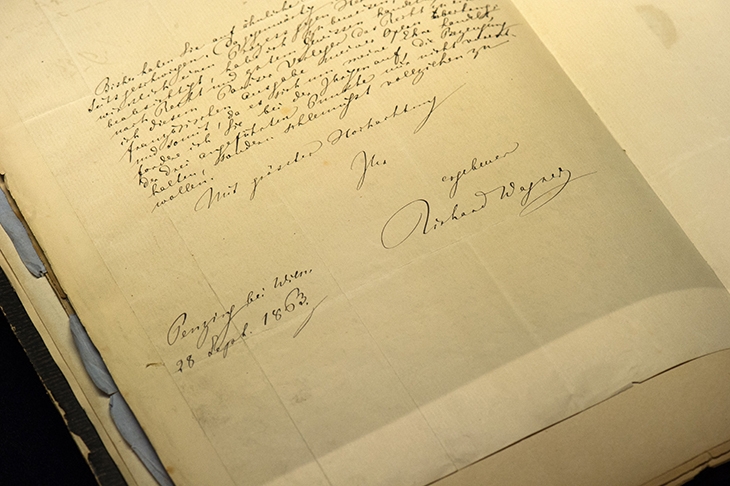No one any longer denies the immense significance of Wagner’s musical-dramatic achievement, even if they find it repellent. But his reputation as a writer — of operatic texts, autobiographical and biographical memoirs, practical essays on how to conduct particular pieces, vast and less vast theoretical works, ranging from speculations on opera and climate to theologico-political musings — is not high. Nor should it be, except for the more ‘occasional’ pieces.
He was in fact a major contributor to mauvaises lettres, and no kind of systematic thinker, however much he might have liked to be. His only prose that is consistently readable comes in his letters, some of them enormous, all of them full of life and colour. Many of the 12,000 he is known to have written survive, still being edited in the German edition. His complete prose works have been translated into English only once, by the dauntless and mad William Ashton Ellis, and although everyone who mentions Ellis’s work rightly deplores it, no one can face the prospect of doing the job again.

Get Britain's best politics newsletters
Register to get The Spectator's insight and opinion straight to your inbox. You can then read two free articles each week.
Already a subscriber? Log in






Comments
Join the debate for just $5 for 3 months
Be part of the conversation with other Spectator readers by getting your first three months for $5.
UNLOCK ACCESS Just $5 for 3 monthsAlready a subscriber? Log in